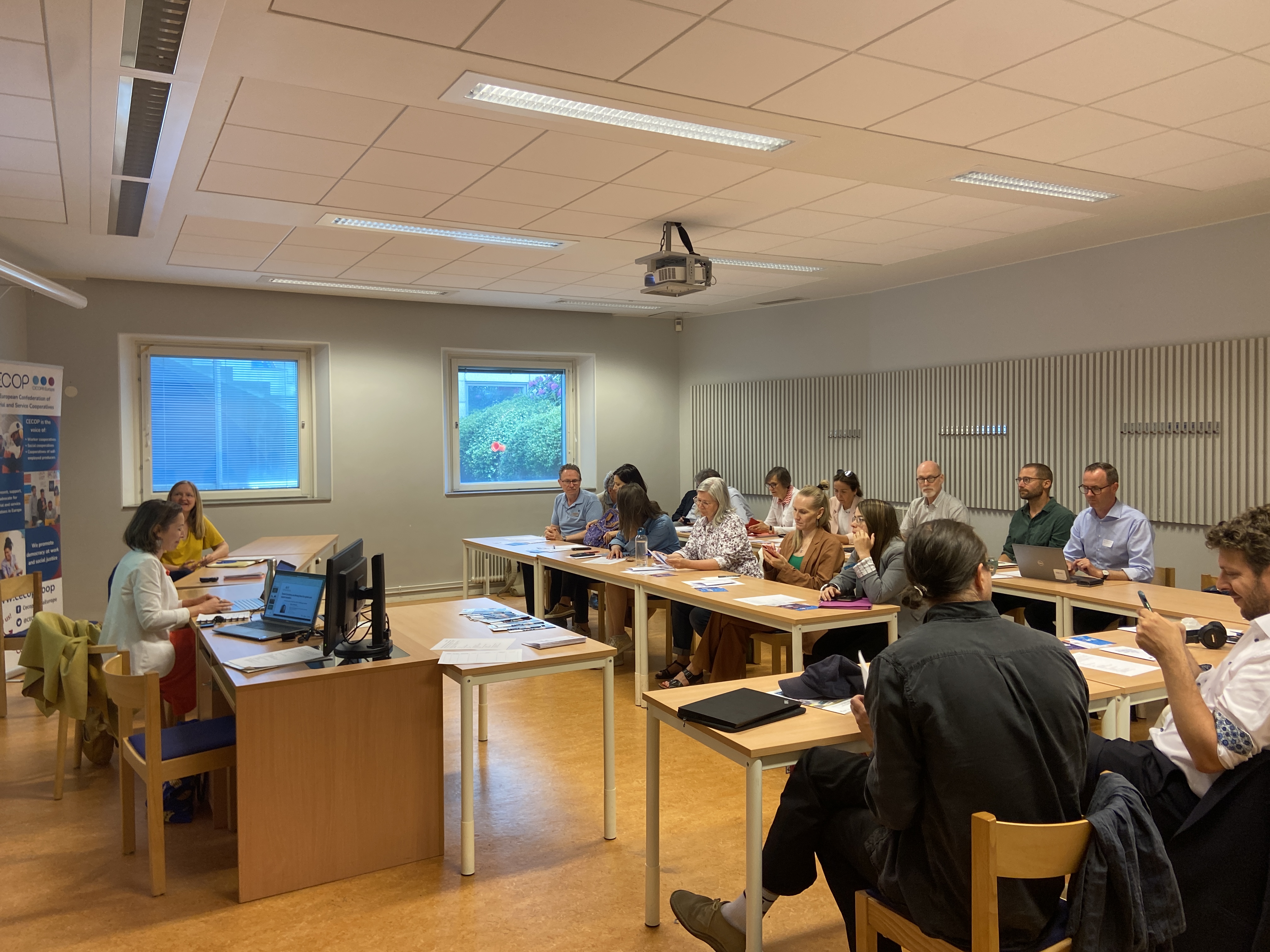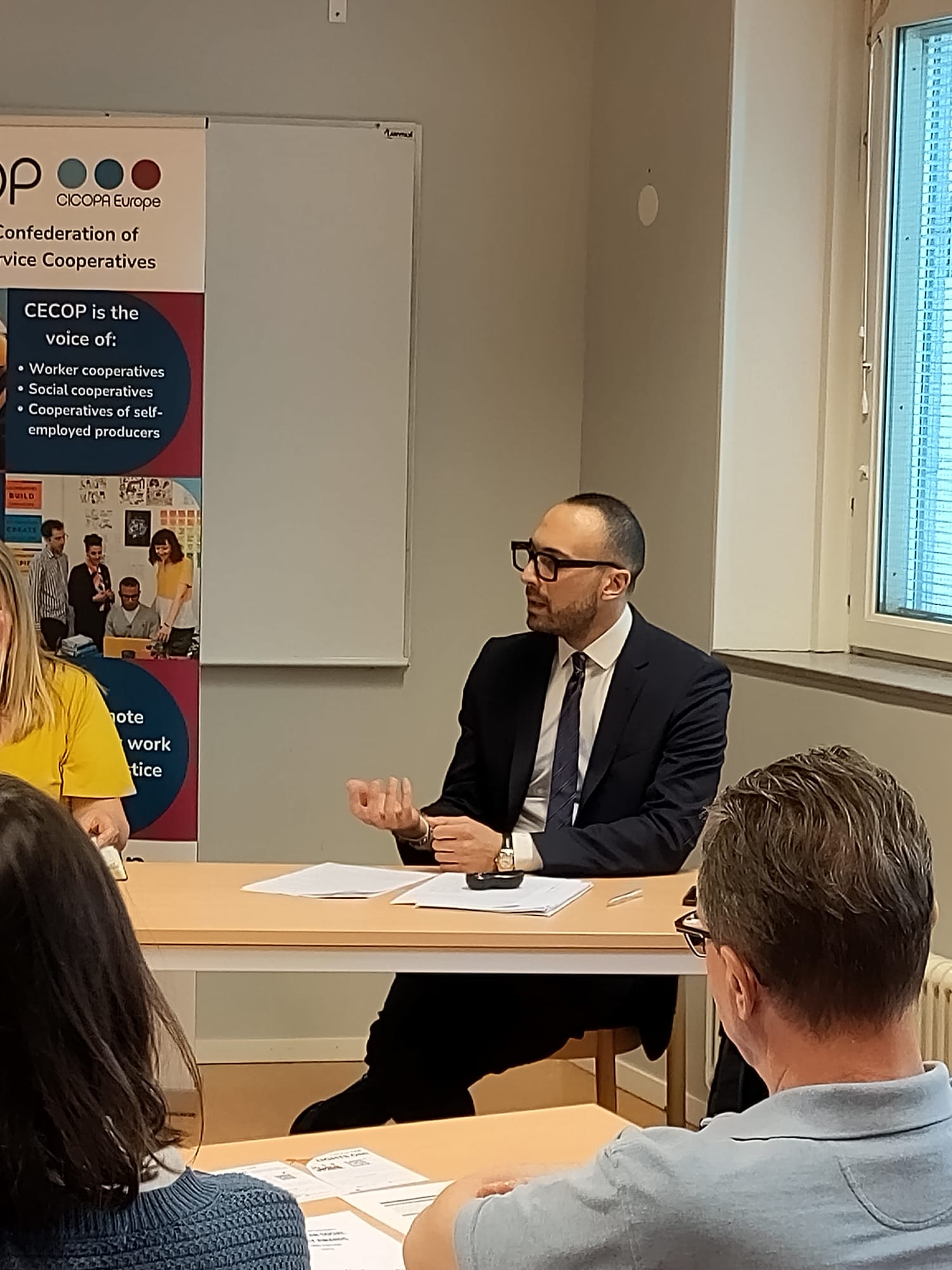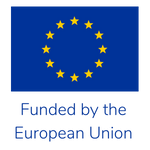On the 8th of June, 2023, CECOP and Social Economy Europe hosted a parallel seminar "Social Economy as driving force for green and digital transition" at the University of Gothenburg. The seminar was organised in the framework of the Social Economy Conference, hosted by our Swedish member Cooperationen.
The Conference had an interesting array of activities, highlighting different aspects of the social economy. Cooperatives were well represented, not only as attendees, but also on panels and during other activities. For example, on the 7th of June, there was a study visit to the cooperative group Vägen Ut!. Vägen Ut! cooperatives provide environmentally friendly products and services while creating stable and secure employment for those who stand furthest from the regular labour market. They work, for instance, with people with mental disabilities or victims of abuse.
The seminar, organised by CECOP and Social Economy Europe, was based on questions about the uniqueness of Social Economy in tackling the twin transition. More particularly, on questions on how the social economy can make the most of these transitions to create a more sustainable, inclusive, fair, and democratic society, and on how these transitions can be compatible with community engagement and quality work conditions. Starting from these questions, the seminar looked at best practices, innovative management models, and the necessary support measures social economy actors need in their role as facilitators of the twin transition.
6 guests spoke at the seminar:
- Gianluca Pastorelli -- Executive President, Diesis Network
- Hanna Surmatz -- Head of Policy, Philea
- Lorenzo Giornelli -- Marketing & Sales Director, Ceramiche Noi Cooperative
- Petter Joelson -- co-founder, Digidem Lab Cooperative and Collective Tools Cooperative
- Sybille Reichert -- Executive Director, the International Association of Mutual Benefit Societies (AIM)
- Björn Wikhamn -- Professor in Management and Organization at the Department of Business Administration of the University of Gothenburg
In the first part, speakers went over key aspects of the green transition where the social economy, and cooperatives in particular, play a role as innovators and as accelerators.
Björn Wikhamn from the University of Gothenburg presented his research and the forms of management that foster innovation. These forms of management, often found in social economy entities, focus on the interdependency and reciprocity of the actors within an organization, as opposed to classic management structures that are rigid, hierarchical, and express one directional dependency.
Presenting the work provided by foundations, Hanna Surmatz from Philea highlighted the pledges foundations and other philanthropic organizations have made towards accelerating the green transition.
Closing the first panel, Lorenzo Giornelli showcased his cooperative Ceramiche Noi which formed from a workers’ buy-out in 2019. Being a cooperative producing ceramic, they are in an energy-intensive sector and are highly affected by the price of energy – and especially gas. With the help of their national federation Legacoop, they are at the forefront of the green transition in their region. Indeed, he highlighted that they are in the midst of switching from gas to green hydrogen to power their ovens – and thus reduce their dependency on gas and convert to a green source of energy.

Linking the first part on the green of the event with the second on digital, Sibylle Reichert from the International Association of Mutual Benefit Societies (AIM), presented how mutual benefit societies contribute to both aspects of the twin transition. Their focus in this process is to make it inclusive, transversal, and close to their members as possible.
On the forefront of the digital transition is Petter Joelson, from the cooperatives Digidem Lab and Collective Tools. He presented the efforts of their organizations to provide democratic, and accessible software solutions that respect the privacy and data of its users. He also showcased the projects they developed during the Conference on the Future of Europe.
Gianluca Pastorelli, from the cooperative Diesis Network, presented their project Public Administration Intelligence European Digital Innovation Hub (PAI EDIH). The PAI EDIH connects a university, public authorities and social economy entities, and other relevant stakeholders from the Friuli Venezia-Giulia, Piedmont, and Aosta regions in Italy. Their aim is to provide services such as digital maturity assessments, advanced digital skills courses, support in creating business plans, finding sources of funding, and more.








 Employment & Social Inclusion
Employment & Social Inclusion  Entrepreneurship
Entrepreneurship Sustainable Growth
Sustainable Growth 


